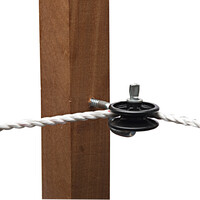Permanent fence post insulators
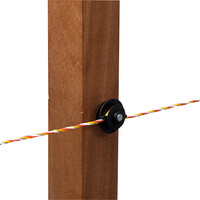

Perfect for short lengths of temporary electric fencing. Securely fix polywire (up to 3mm) to wooden posts with these durable nail-on bobbin insulators, designed specifically for polywire fences. Nails included for easy installation.


Gallagher high quality screw-in insulator without metal core, therefore no short circuiting possible. Pack of 250. Easily screws into wooden fence posts.
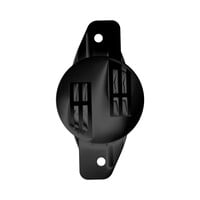

Made from high density, sunlight resistant polyethylene plastic. Large heavy duty shield eliminates power leakage. Suitable for guiding wire around a corner post.
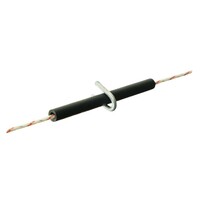

Tube Insulators suitable for all wire up to 3mm diameter. Designed for use on permanent electric fences these tube insulators are perfect for wooden posts, particularly where encroaching vegetation may be an issue.


Hotline Saddle Insulators (50 pack) feature an integral nail for quick installation on wooden posts and are suitable for polywire or galvanised wire up to 3mm. Designed to prevent power loss and reduce wire wear.
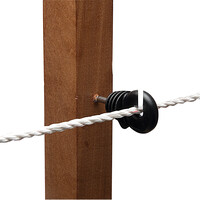

These Hotline electric fence insulators are high quality, heavy duty screw-in plastic ring insulators (20).
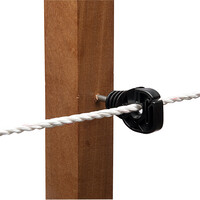

Screw-in ring insulator with tape fitting for electric fencing. Fits polywire, galvanised wire, rope up to 7mm, and tape up to 20mm. Quick installation with speed chuck compatibility. Pack of 100.
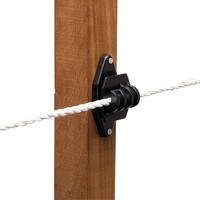

Hotline Large Snug Nail-On Insulator (Pack of 20).
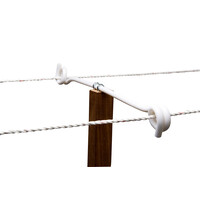

Very versatile offset insulator that will fasten onto stock fencing. 10 pack.
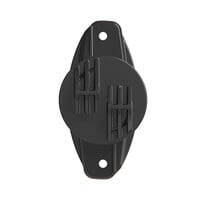

Made from high density, sunlight resistant polyethylene plastic. Large heavy duty shield eliminates power leakage. Suitable for guiding wire around a corner post.
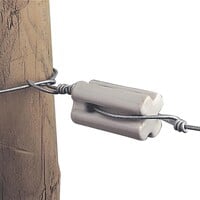

Heavy-duty porcelain end insulators for straining wire on wooden fence posts. Ideal for start and end points to maintain wire tension. Built to withstand tough conditions.


- High quality white plastic from Pulsara
- Suitable as a corner and tension insulator
- Suitable for short semi-permanent fencing
- Manufactured from UV resistant polypropylene
- The high tensile force enables large distances and prevents loss of ten


High quality ring insulator with metal core. Packaging contains 25 pieces.


Made from high density, sunlight resistant polyethylene plastic. Large heavy duty shield eliminates power leakage. Suitable for guiding wire around a corner post.
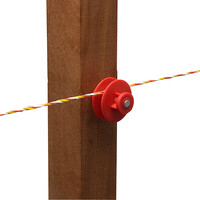

Large red nail-on bobbin insulator for electric fencing. Designed for polywire up to 3mm, it securely attaches to wooden posts, ensuring durability and easy installation. Perfect for creating reliable fence systems.


Gallagher high quality screw-in insulator without metal core, therefore no short circuiting possible. Pack of 100 pieces. Easily screws into wooden fence posts.
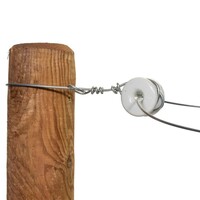

60x porcelain roll-corner insulator to strain the wires on the corner posts.
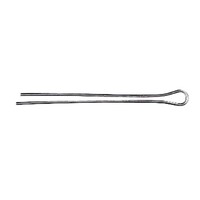

We recommend the use for fixing wire to an Insultimber post or Gallagher Ecopost.
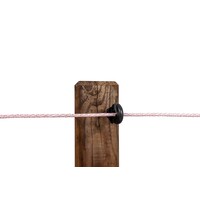

- Without metal core
- High-quality black plastic
- Suitable for wire and cord
- For wooden posts
